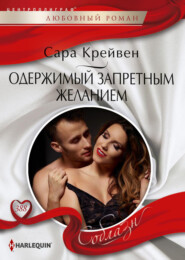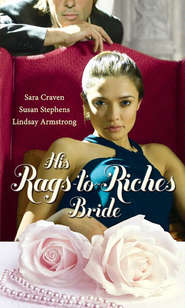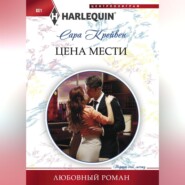По всем вопросам обращайтесь на: info@litportal.ru
(©) 2003-2024.
✖
Dragons Lair
Автор
Год написания книги
2018
Настройки чтения
Размер шрифта
Высота строк
Поля
‘Oh yes. Surprising it is. Families, mostly, which is why I have the tables outside—for the children, see. Funny old licensing laws we have. And there’ll be more visitors, I daresay, if the old mill up the valley gets working again as they reckon.’
‘Mill?’ Davina raised her brows questioningly.
The woman nodded vigorously. ‘An old woollen mill. Very dilapidated, but they say it will work again. Fine thing, too, for Moel y Ddraig when it does. A bit of local industry to keep the youngsters from drifting away.’
She led the way along a narrow passage and flung open the door at the end.
‘Through the yard, see, and round the corner,’ she directed. ‘I’ll bring your lunch in a minute.’
It was a wide lawn, sloping gently down towards the river at the bottom. Davina strolled down to the bank and stood on its edge, gazing down into the clear fast-flowing water. It was quite shallow at this point, but further out there were deeper pools and in one of these two small boys stood fishing happily. They gave Davina a friendly wave, and she waved back, suddenly enjoying the fresh sparkle of the water and the kiss of the sun on her face.
The sandwiches which arrived with amazing promptness were delicious—thick slices of turkey breast with a slight sprinkling of salt laid between chunks of undoubtedly home-made bread. The butter too had a taste which had nothing to do with supermarkets. Even the crusts were good. When she had finished, Davina sat back with a sigh of repletion. She smilingly refused an offer of apple pie and cream, but accepted a cup of coffee.
‘You don’t do bed and breakfast, I suppose?’ She was only half-joking. It had occurred to her that she would need to stay overnight somewhere, and that the inn would make as good a base as any.
‘I’m sorry, I don’t.’ The landlady set a cup of coffee down on the small iron table and added a bowl of brown sugar. ‘But Mrs Parry might be able to help you, that is if she’s not full up with her pony-trekkers. Are you going to be staying long?’
‘I’m not sure.’ Davina realised with irritation that she was being deliberately evasive. Yet what was the point? Sooner or later she would have to ask someone if they knew Gethyn, and this woman was friendly and approachable. She hesitated. ‘As a matter of fact, I’m here on business. I—I’m looking for someone—a Gethyn Lloyd. He’s a writer.’
‘Mr Lloyd—a writer? Well, there’s a thing, now.’ The other woman sounded amazed. ‘You won’t have to look much further, though. He’s up at Plas Gwyn. In fact, it belongs to him.’
‘Yes, that’s the place,’ Davina said, relieved that her search was turning out to be relatively simple. ‘Can you tell me where it is?’
‘Why, of course I can. That’s where I was going to send you for the bed and breakfast. It’s Mr Lloyd’s aunt, Mrs Parry, who does all that side of it, and young Rhiannon who takes out the riders.’
Davina smothered a gasp of disbelief. Gethyn might have his reasons for burying himself in the solitude of a remote valley, but she found it hard to take that one of them could involve the running of a pony-trekking centre. And she was frankly dismayed to learn that the only accommodation she could obtain locally seemed to be under his roof. That had not entered her plans at all. She had taken it for granted that any interview she might have with him could at least be conducted on some form of neutral territory.
It was on the tip of her tongue to ask the landlady if she could not make an exception and put her up for the night, but she stifled the impulse. Friendly she might be, but this was only a small place and gossip would be rife. Davina guessed her arrival and revelation about Gethyn’s identity would be sufficient of a nine-day wonder without giving more grounds for speculation. And if she was only a business acquaintance as she had said, she had no real reason for rejecting Mrs Parry’s accommodation. All she could do was hope that Plas Gwyn would be full of pony-trekkers and that there would be no room for her. If that was so, she would have to start for home again that evening and trust to luck that she could find somewhere to stay on the road. It did not give her a lot of time to see Gethyn and talk to him, and she drank the remains of her coffee with a sense of resolution. She had little time to waste. She paid her bill, and listened to the landlady’s explicit directions on how to reach Plas Gwyn. She was thankful she had asked. Without them, she might have wandered round for hours, as it appeared the house itself lay at the end of an unmarked track which was unsuitable for cars. Pony-trekkers, she thought with a wry inward smile, must be an intrepid bunch!
She was so busy watching the road and looking out for the landmarks that would guide her that she quite forgot the implications of her visit. It was not until she climbed out of the car to open the big white gate which closed off the track that the old misgivings assailed her. She paused. It was still not too late to get in the car and drive away like the wind. Then with determination, she dragged the heavy gate into place behind the car and fastened it with the loop of wire provided for the purpose. She had the oddest feeling she had burnt her boats, as she set the car going again, bumping forward over the rapidly deteriorating track. She found the parking place the landlady had mentioned quite easily about half-way down. Three cars were drawn up there and a battered-looking Landrover. Davina parked her own vehicle and locked it after collecting her handbag and briefcase. Her suitcase she left where it was in the boot. Then she started to walk. The sandals she was wearing with their high wedged heels were not the most comfortable form of footwear for these conditions, she soon discovered. The track was deeply rutted and there were loose stones everywhere as an added pitfall.
Davina thought ruefully that she would be lucky to arrive at Plas Gwyn with her ankles intact, and was thankful she was not burdened with the additional hazard of her overnight case.
She rounded a corner and the house lay in front of her. It was a rambling two-storey building, half-timbered and obviously very old. Moss and lichen had gathered on the slate-covered roof, and the small square windows under the heavy eaves seemed to slant at crazy angles. It was very still, the only sign of life coming from the faint thread of smoke issuing from one of the chimneys. Davina walked forward uncertainly. There were two small lawns in front of the house, bordered by a low white fence. On one of them a cream-coloured nanny goat had been tethered and she looked up with bright, acquisitive eyes as Davina opened the squeaking gate and approached the front door.
The door stood slightly ajar and she pushed it open tentatively and went in. She found herself in a large square hall. A wide staircase in dark polished wood curved away to the upper storey on her right. The walls were panelled in wood too, and there was a big stone fireplace, swept and polished, its wide hearth filled not with logs but an attractive arrangement of dried grasses and leaves.
On the left a passage stretched away to the back of the house, and around the hall were three doors, all tightly closed. Davina looked around her a little helplessly. A big oak table stood on the left-hand wall, holding a small brass gong and what appeared to be a visitors’ book. After a moment’s hesitation, she trod across to the table and struck the gong lightly.
Almost before the echoes had died away, a voice behind her said coolly, ‘Yes, can I help you?’
Davina turned sharply, conscious of relief that it was at least a female voice. The girl facing her was, she judged, younger than herself, tall and slim with a cloud of dark hair hanging on her shoulders. She wore a pair of riding breeches, well-fitting but shabby, and a faded checked shirt. Her glance, while not exactly hostile, did not reflect the generally welcoming atmosphere of the house. It seemed to assess Davina and then dismiss her.
‘I’m looking for Mr Gethyn Lloyd,’ said Davina.
‘Oh?’ The girl’s brows rose interrogatively. ‘And who is it wants him?’
Davina hesitated. Her impulse was to tell this stranger to mind her own business, but she controlled it. Judging by what the woman at the inn had said this must be Rhiannon, and Davina had no wish to start off on bad terms with a member of the Plas Gwyn household. Things were going to be difficult enough without that. She decided to play it cool. After all, she had no means of knowing how much this Rhiannon might know of Gethyn’s private life or her own brief part in it.
‘My name is Greer,’ she said quietly. ‘Davina Greer.’
The girl took a step forward, and her eyes were blazing. Davina felt herself recoil instinctively before this fierce dislike.
‘Oh, is it?’ she said with a kind of angry derision. ‘Well, you can just go back where you came from. You’re not wanted here.’
‘Rhiannon!’ The shocked protest came from the stairs. Davina glanced up and saw they had been joined by an older woman. It was impossible that she and the angry Rhiannon could be other than mother and daughter. Mrs Parry’s dark hair might be silvering at the temples, and her eyes full of anxiety instead of sparking with temper, but their basic bone structure was practically identical.
She came down the stairs, casting her daughter a look of dismay. ‘I’m so sorry,’ she turned apologetically to Davina. ‘It’s quite true we are full at the moment, but that’s no reason for my daughter’s discourtesy.’
Rhiannon moved impatiently. ‘You don’t understand, Mam. She hasn’t come to stay. She’s come to see Gethyn. She’s his wife.’
The last staccato sentence died away into an awkward silence. Eventually Mrs Parry said nervously, ‘Oh dear—I wonder what … I suppose I’d better introduce myself. I’m Gethyn’s Aunt Beth—his father’s sister.’
It seemed ludicrous under the circumstances to express any kind of pleasure at the meeting, so Davina contented herself with shaking hands in silence.
‘I’m sorry if my arrival has upset anyone,’ she said at last. ‘But I am here on business.’ She indicated her briefcase, leaning against one leg of the table.
Mrs Parry eyed it almost distractedly. ‘Yes, of course, only … It’s so difficult, you see.’
‘Mrs Parry,’ Davina tried to sound reassuring, ‘I haven’t come to stay. I work for my uncle at Hanson Greer and I have some papers for Gethyn to look at. If I could just see him for a few minutes …’
‘Well, you can’t, then,’ Rhiannon broke in rudely. ‘Because he’s not here and he won’t be back until tomorrow or the next day. So you may as well take yourself off.’
‘Rhiannon!’ It was her mother’s turn to sound really angry now. ‘If you can’t be civil, you’d better go to your room. I’ll deal with this.’
Rhiannon’s lip curled. ‘Please yourself. If you want me, I’ll be in the stables.’ With a last inimical glance at Davina she walked out of the front door and disappeared.
Mrs Parry became galvanised into activity. ‘Won’t you come in, Miss—er—oh!’ She broke off in confusion. ‘I don’t even know what to call you.’ She threw open one of the doors on the left revealing a large sitting room furnished with comfortable sofas and deep armchairs covered in faded chintz. ‘Do sit down. I’ll go and make some tea.’
Davina halted her. ‘Please—not for me. Was Rhiannon right? Is Gethyn not here?’
His aunt looked troubled. ‘Well, no—not at the moment he isn’t. He’ll be back, of course, but it’s difficult to say when. He comes and goes as he pleases, you see.’
‘He hasn’t changed,’ Davina said quietly. She made herself smile briefly. ‘Well, that makes things—rather awkward. I had rather counted on seeing him. My uncle will be very disappointed.’
Mrs Parry appeared to think quickly and make up her mind. ‘Well, if you’d like to stay and wait until he returns, you’d be very welcome.’
Davina hesitated. It was obviously the most sensible course to pursue under the circumstances, yet she felt uncertain. For one thing she was putting Gethyn’s aunt in a difficult position, and for another she would have to cope with Rhiannon’s open hostility. Gethyn, it seemed, had not been reticent about the past with his young cousin.
‘I don’t know,’ she said eventually. ‘It’s very kind of you, but I thought you said there was no room.’
‘Oh, but you’re family.’ Mrs Parry gave a quick, rather shy smile. ‘That makes all the difference. We can find a corner for you.’
Davina bit her lip. To describe her as family under the circumstances was pitching it a bit high, but Mrs Parry clearly meant well and it would be churlish to reject the relationship or the hospitality, so she merely thanked her quietly.
The room she was shown to was quite a large one at the back of the house, overlooking a small orchard with a glimpse of the river in the distance, and beyond that the steep outline of the mountain. It contained a wide brass bedstead covered in a Welsh tapestry counterpane, and matching curtains hung at the windows. There was a tall dressing chest in one corner topped by a mirror on a swivel, and a matching mahogany wardrobe on the other side of the room. There was a small table under the window and an elderly easy chair close beside it. The floorboards and furniture gleamed with polish and a faint fragrance of lavender hung in the room.
‘It’s delightful,’ Davina said after the first appreciative glance around.’













